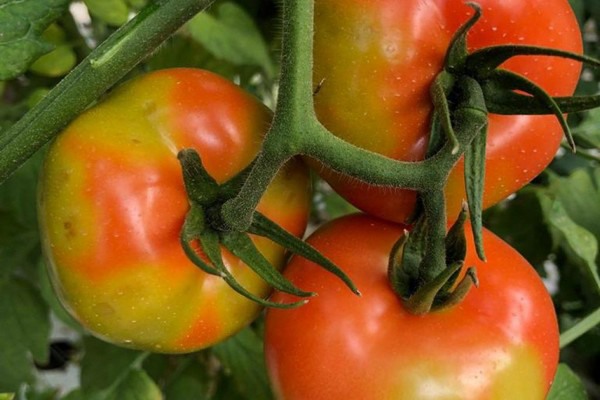AUSVEG is continuing to strongly emphasise the need for timely communication of testing and tracing results and information from the government to growers, as the national response to the detection of tomato brown rugose fruit virus (ToBRFV) in South Australia in August remains underway.
"ToBRFV is a significant concern for tomato, capsicum and chilli growers and is continuing to cause substantial impacts, particularly on directly affected businesses, as well as those impacted by jurisdictional movement restrictions," said a spokesman from AUSVEG.
As part of the national response, AUSVEG has continued to support an approach that mitigates the risk of spread to other farms, while facilitating the movement and supply of produce to market via evidence-based, risk-managed pathways.
"AUSVEG remains engaged with relevant biosecurity agencies, government and industry stakeholders to ensure the views of the national industry are considered as part of the national response. We will continue to provide updates as they are made available by relevant government agencies."

Heavy handed tactics?
One grower has commented that the Department of Primary Industries and Regions (PIRSA) is being heavy handed and believes growers should be allowed to manage tomato brown rugose fruit virus but bio-security officials want to eradicate the highly contagious plant virus.
Despite waiting for over six weeks, the grower's tomato test results for the virus remain inconclusive, leaving him in a state of uncertainty regarding the sale of his produce.
The agency says the virus is limited to three properties and that over 3,000 test results have been received, leading to the clearance of 10 properties. However, 12 sites are still awaiting their results. To expedite the process, a laboratory will be set up at the SA Research and Development Institute.
Jurisdictional responses
The latest published information relating to the South Australian response to the detection of ToBRFV at three businesses on the Northern Adelaide Plains is available on the state's Department of Primary Industries and Regions website.
Precautionary measures remain in place in other jurisdictions including: Queensland Movement Control Order suspending entry into the state of potential ToBRFV carriers from South Australia; the application of import requirements for potential carriers of ToBRFV entering Western Australia from South Australia; and a New South Wales Control Order preventing the movement of risk items, including tomatoes, capsicums and chillies from affected and linked, properties in South Australia. (Note: since the last update, Biosecurity Tasmania has introduced an Emergency Biosecurity Direction preventing the movement of ToBRFV host plants or materials into the state from areas known to be infected with the virus.)
Temporary suspensions of Australian tomato imports into New Zealand, and imports of Australian tomatoes, capsicums and chillis, into New Caledonia remain in place.
Peter Malinauskas, Premier of South Australia: "The State Government is taking immediate action to try and protect our state's $230 million tomato and capsicum sector. This is not an easy decision, but we have one chance to try to contain this virus.
"Quarantining these greenhouses will have an impact on workers, which is why the State Government has established a taskforce to assist those workers. This includes establishing a Worker Assistance Hub at the Virginia Horticulture Centre, which will open tomorrow and help workers and their families accessing the support and services they need."
National response
The Emergency Plant Pest Response Deed (EPPRD) is a Government-industry partnership, outlining the national governance and investment in responding to and eradicating emergency plant pests (EPP). Under the Emergency Plant Pest Response Deed (EPPRD) there are formal roles for both Government and affected industry parties, relating to the national response to ToBRFV – and any other incursions of EPP.
As the vegetable industry representative on the Emergency Plant Pest Response Deed (EPPRD), AUSVEG represents levy-paying industries on the EPPRD during biosecurity responses affecting the industry, to ensure grower perspectives are heard. While the tomato industry does not directly contribute to biosecurity levies, as the vegetable industry representative body, AUSVEG continues to support fresh market tomato growers during the ToBRFV response. The Australian Processing Tomato Research Council and Greenlife Industry Australia are the other industry representatives involved in the national response under EPPRD arrangements.
AUSVEG is continuing to provide updates as they become available, and continues to emphasise the need for release of timely information to growers and industry, as well as proportionate, evidence-based biosecurity responses.
For more information:
AUSVEG
[email protected]
ausveg.com.au
